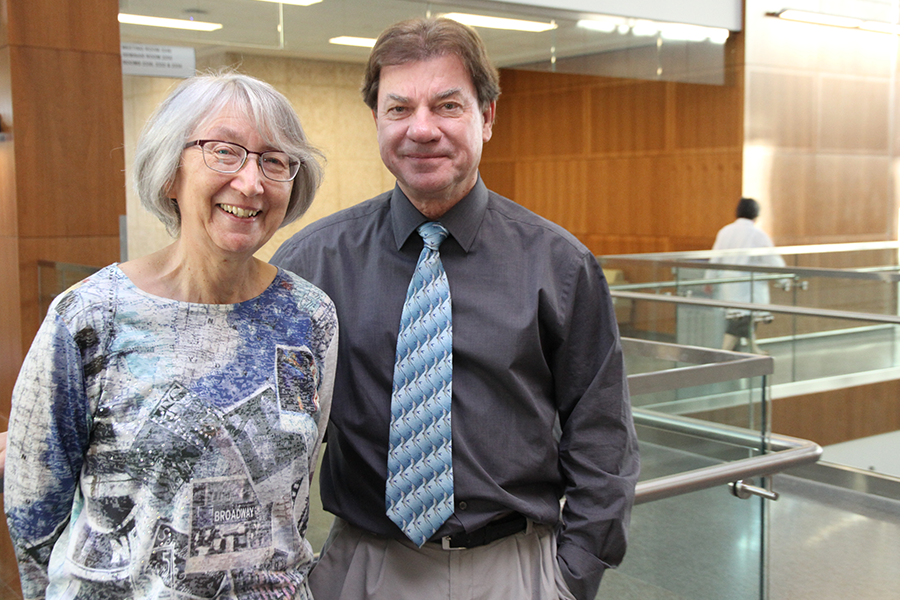
PharmaZzz helps pharmacists help patients with insomnia
Dr. Fred Rémillard and his colleagues, Loren Regier (RxFiles), Karen Jensen (medSask), and Pharmacy student Janelle Trifa, have developed PharmaZzz©, a non-medication therapy offered by community pharmacists and designed to help patients with chronic insomnia improve their sleep and come off hypnotic therapy.
By Kieran KobitzCommunity pharmacists are ideally situated to help patients with chronic insomnia learn how to improve their sleep without the use of sleep medications. Benzodiazepine and non-benzodiazepine hypnotics are the most common treatment for insomnia but these drugs are not recommended for long-term use due to concerns about tolerance, dependency, and side effects.
Alternatively, cognitive behavioural therapy for insomnia (CBT-I) is considered the most appropriate treatment for patients as it addresses the underlying causes of insomnia – not just relieving the symptoms. Yet, “CBT-I is widely underutilized due to a lack of familiarity, awareness, and especially accessibility to trained service providers,” says medSask Manager Karen Jensen. “Our goal is to reduce long-term hypnotic use by increasing access to CBT-I through our community pharmacists.”
PharmaZzz© is a six session program involving an initial screening session, a 1-hour in-person educational and treatment initiation session, followed by four weekly 15-minute follow-up sessions, which can be done face-to-face or over the phone. Core elements include: sleep restriction therapy to improve sleep onset and maintenance using sleep logs; stimulus control to strengthen the association of sleep with the bedroom; and sleep hygiene to provide guidelines regarding sleep-promoting activities. Other CBT-I components include cognitive restructuring, which addresses dysfunctional sleep beliefs, and relaxation techniques.
To date, 16 Saskatchewan pharmacists have received PharmaZzz© training. Feedback has been positive, and if the project proves promising, more training workshops will be held. “Studies have shown that CBT-I can be successfully provided by primary care providers who are not sleep specialist,” says Dr. Rémillard, board certified psychiatric pharmacist and professor of Pharmacy at the College of Pharmacy and Nutrition.
Over the next year, 4th year Pharmacy student Janelle Trifa will collect data from community pharmacists and their insomnia patients to evalute the effectiveness and feasibility of the program in pharmacy settings. If the program proves successful, CBT-I has the potential to become a pharmacist fee-for-service activity and/or be eligible for drug plan coverage.
Pharmacists and patients interested in learning more about the PharmaZzz© program can contact Karen Jensen at (306) 966-1330.
